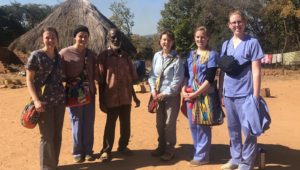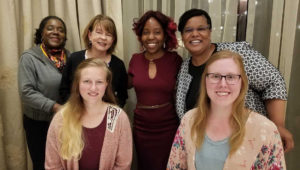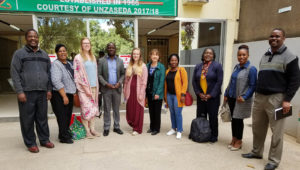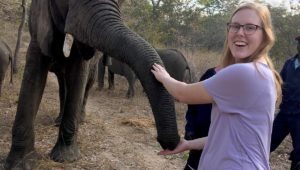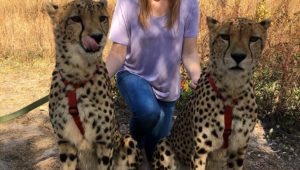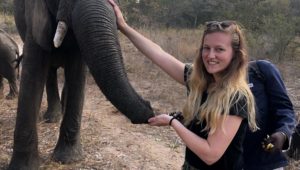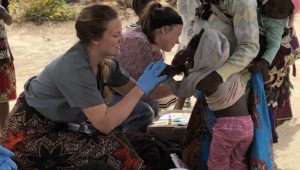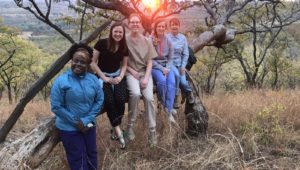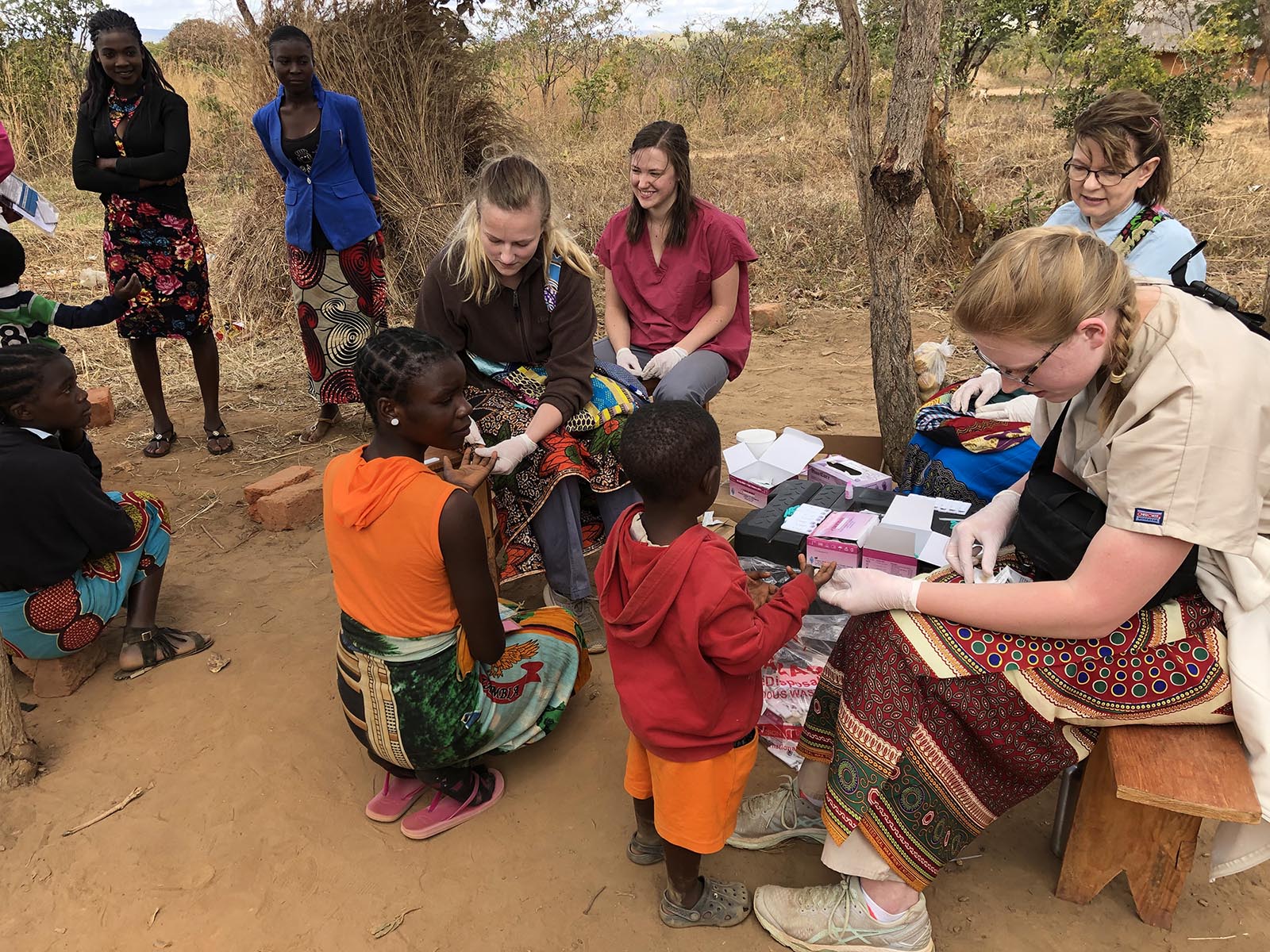
By TYLER ELLYSON
UNK Communications
KEARNEY – When the University of Nebraska announced its Africa Teaching Initiative, Michelle Fleig-Palmer immediately thought of one person.
The associate professor in the University of Nebraska at Kearney’s Department of Management and director of the health care management program emailed Dr. Marjie Heier, a Schuyler native who has served as medical director at the Chifundo Rural Health Center in Zambia since 2013.
Heier has visited UNK each of the past six years to guest lecture in classrooms and participate in community forums. She’s also been a featured presenter at the James E. Smith Midwest Conference on World Affairs hosted by UNK.
Those conversations sparked an interest in global engagement among many UNK students and showed them they can make an international impact, even while studying in central Nebraska.
Fleig-Palmer knew she had the perfect opportunity to expand this partnership through the Africa Teaching Initiative, which aims to strengthen the curriculum at University of Nebraska campuses by introducing students to Africa through any disciplinary perspective.
The plan this time around wasn’t to bring Heier back to UNK. Fleig-Palmer and other faculty wanted to take a group to Zambia, where they could see the health care system firsthand and interact with residents during their day-to-day lives.
“It’s one thing when you’re reading about it in a book; it’s another thing to be there and really experience it,” said Fleig-Palmer, who organized the trip along with UNK Department of Family Studies faculty Sharon Obasi and Toni Hill.
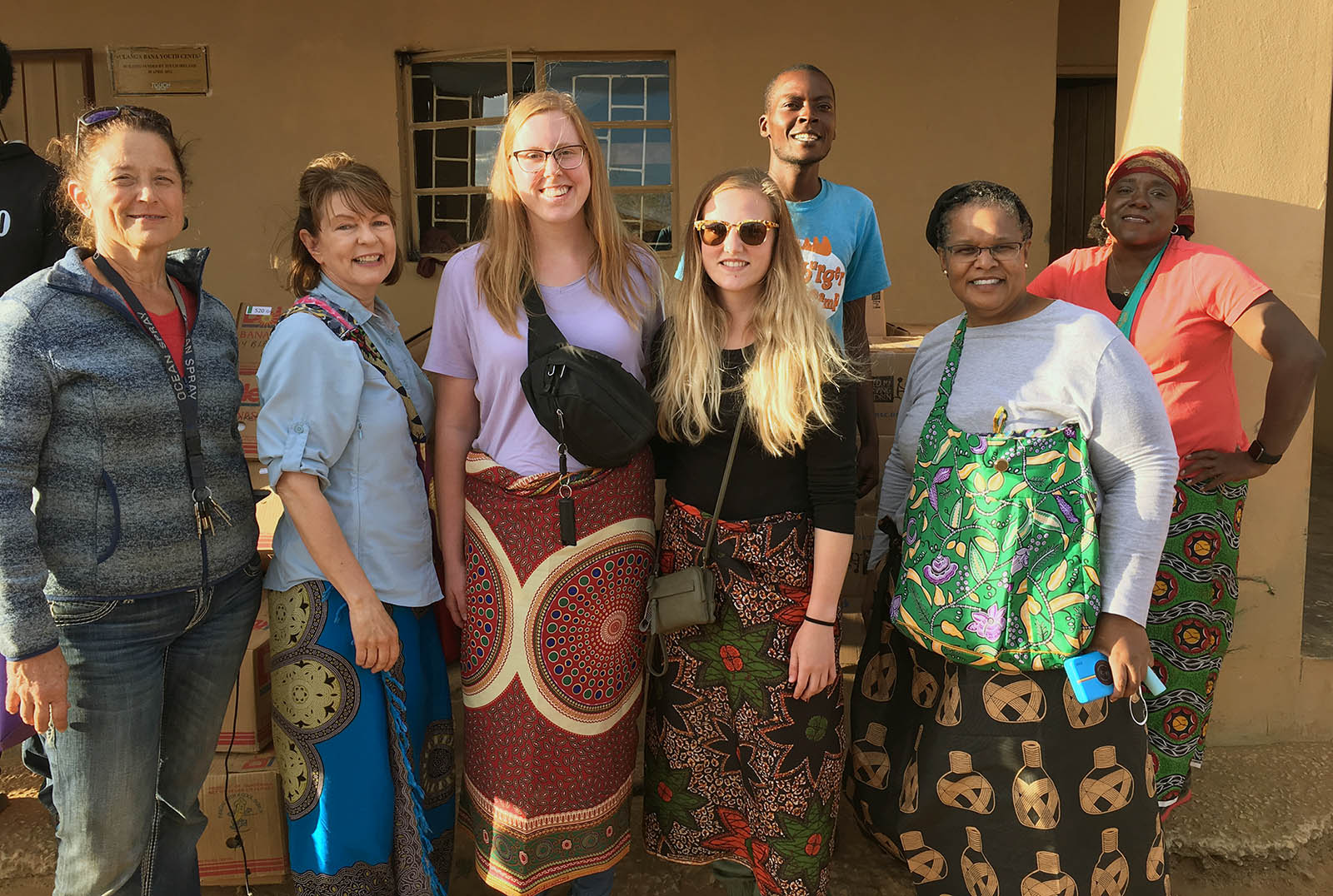
UNIQUE OPPORTUNITY
With additional funding from their respective departments, the UNK faculty and two students were able to travel to Zambia last month to work in Heier’s health clinic, conduct research to enhance their courses and learn more about a place that’s very different from Kearney, Nebraska.
“It was incredible. It was very humbling to see the work Dr. Heier and her team are doing in a very remote part of Zambia,” said Hill, an associate professor and director of UNK’s early childhood and family advocacy program.
Hill and Obasi, an assistant professor and assistant director of the early childhood and family advocacy program, spent two weeks in Africa. Fleig-Palmer and the two students – Michaela Walker of Kearney and Tessa Copp of Ord – were there an entire month.
“I have always wanted to go to Africa, but I never thought it would be now. I thought it would be in 15 or 20 years,” said Walker, a junior pre-medical student who works as a certified nursing assistant at CHI Health Good Samaritan in Kearney.
Walker plans to become a doctor, and she’d like to help out in developing countries where access to health care is limited.
“I thought this was a great opportunity to go over there and start making those connections,” said Walker, who participated in a church-sponsored mission trip to Costa Rica in high school and assisted in the Dominican Republic last summer along with other members of the UNK chapter of Volunteers Around the World.
Copp, who graduated from UNK in May and will start the University of Nebraska Medical Center’s accelerated nursing program in Kearney next year, shares the same mindset.
“I’ve always wanted to go to Africa and I love health care, so being able to combine both into one trip was really awesome,” said Copp, a certified nursing assistant at Valley County Health System in Ord. “I wanted to see what their culture is like and help them in any way possible.”
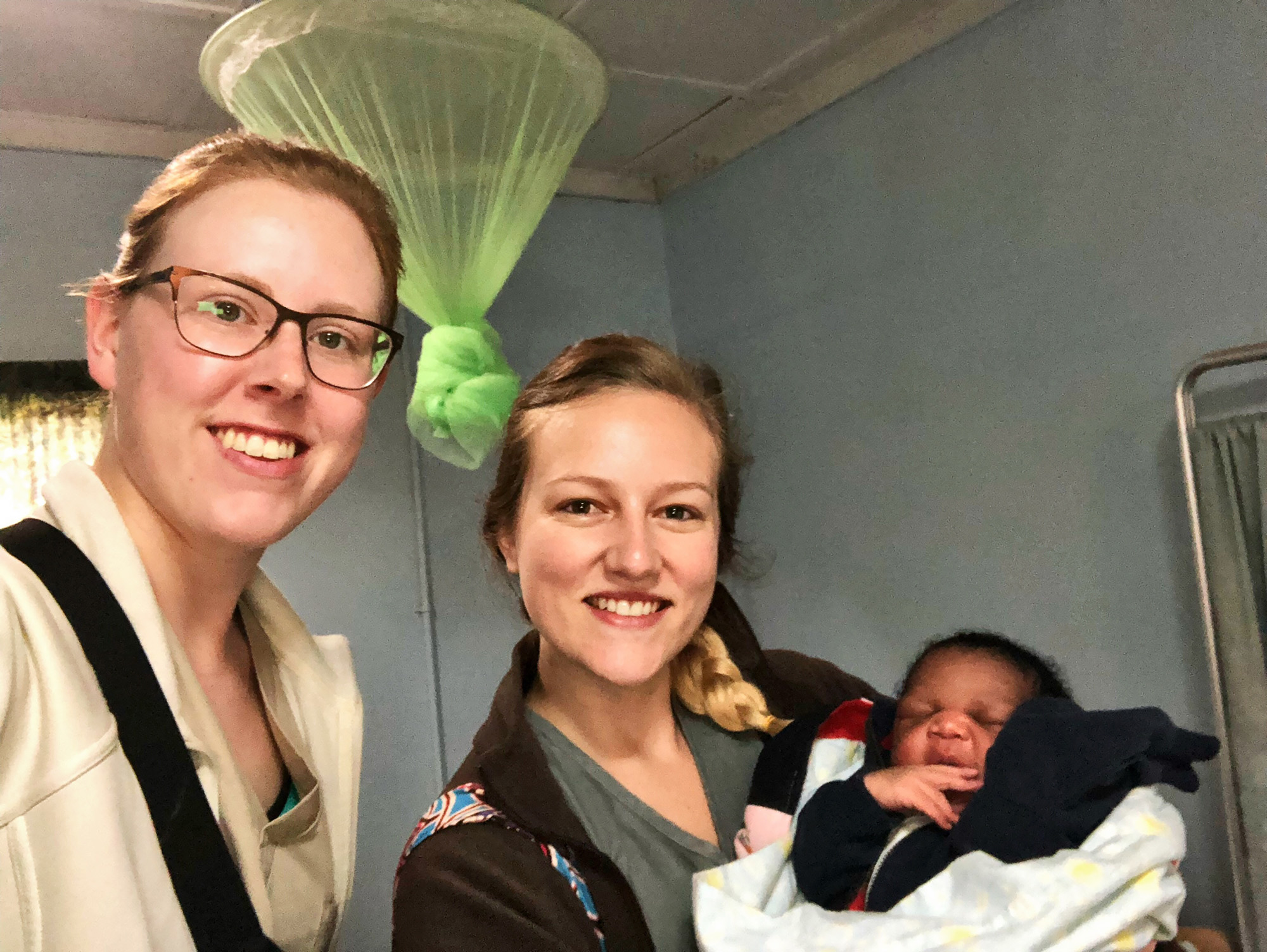
AMAZING WORK
Chifundo Rural Health Center is located on the campus of Ambassador International University in south-central Zambia, about 40 miles east of the capital city of Lusaka.
It’s so remote, Walker had trouble finding it on a map prior to her arrival.
The clinic serves staff and students at the university, as well as a district of about 65,000 people, some of whom walk a couple hours to get there.
“If that clinic wasn’t running, many of them would have to walk three or four hours to get medical services,” Fleig-Palmer said. “It’s amazing how much that one clinic is doing for so many people.”
The health center, which provides its services at no cost to patients, handles everything from malaria and HIV screenings to malnutrition, illness and child births. Every member of the UNK team – except Hill, who politely passed – assisted with a child birth.
“It was incredible getting to be hands-on while helping deliver a baby,” Copp said. “This experience gave me so many opportunities that you normally don’t get until you’re already into nursing school.”
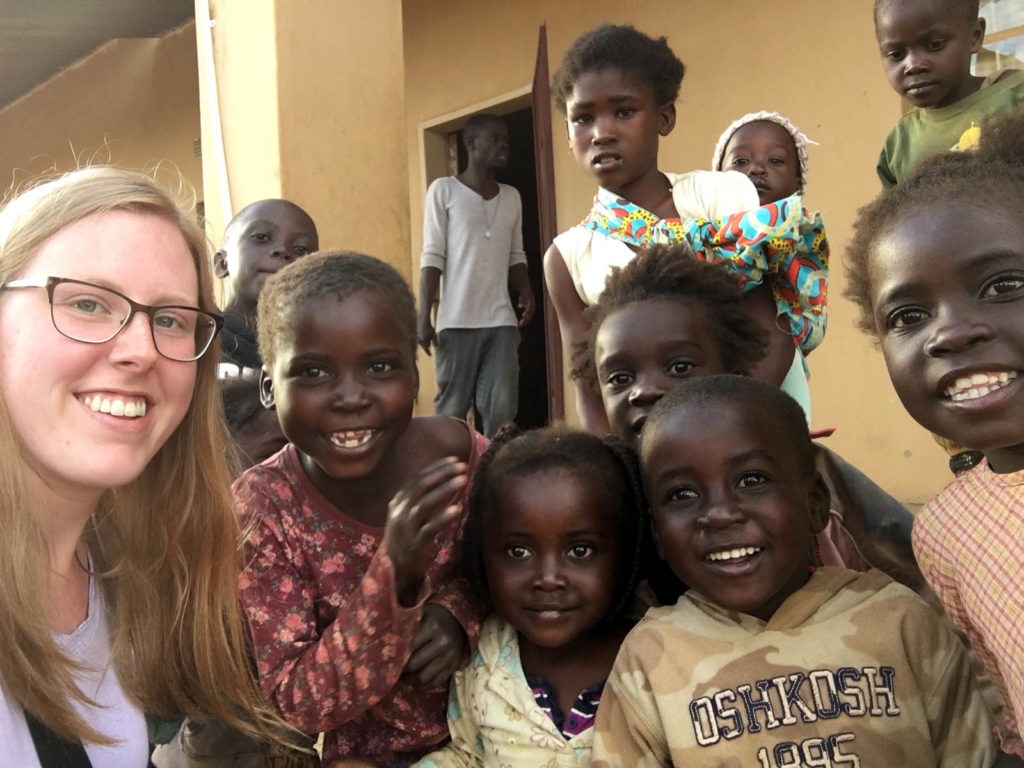
Walker and Copp worked alongside nurses at the clinic while intaking patients, assisting with health screenings and tests and administering vaccines. The clinic also provided child care information and cooking demonstrations for new mothers, and the UNK group helped prepare a ward for the ophthalmology team that arrived in July.
Each Wednesday, they traveled to a different village to work at an outreach clinic that often served nearly 200 patients, with many waiting several hours for care.
The difference between the U.S. and Zambian health care systems was staggering.
“I’ve been to other countries before and I’ve seen how little they have,” Walker said. “It’s kind of mindboggling when you come back to the United States and see how much everyone has and how easy health care is to access here.”
Copp, who’s also been on a mission trip to Panama, agrees.
“We take so much for granted in the United States,” she said. “I think it’s really good to see the way other people live and the way other people do things. I try not to criticize things so much now because I know how good we really have it here.”
One of the biggest surprises was the lack of potent painkillers, especially during child birth.
“Even with those challenges, there was such a sense of resilience among the people and such a sense of a strong spirit,” said Obasi.
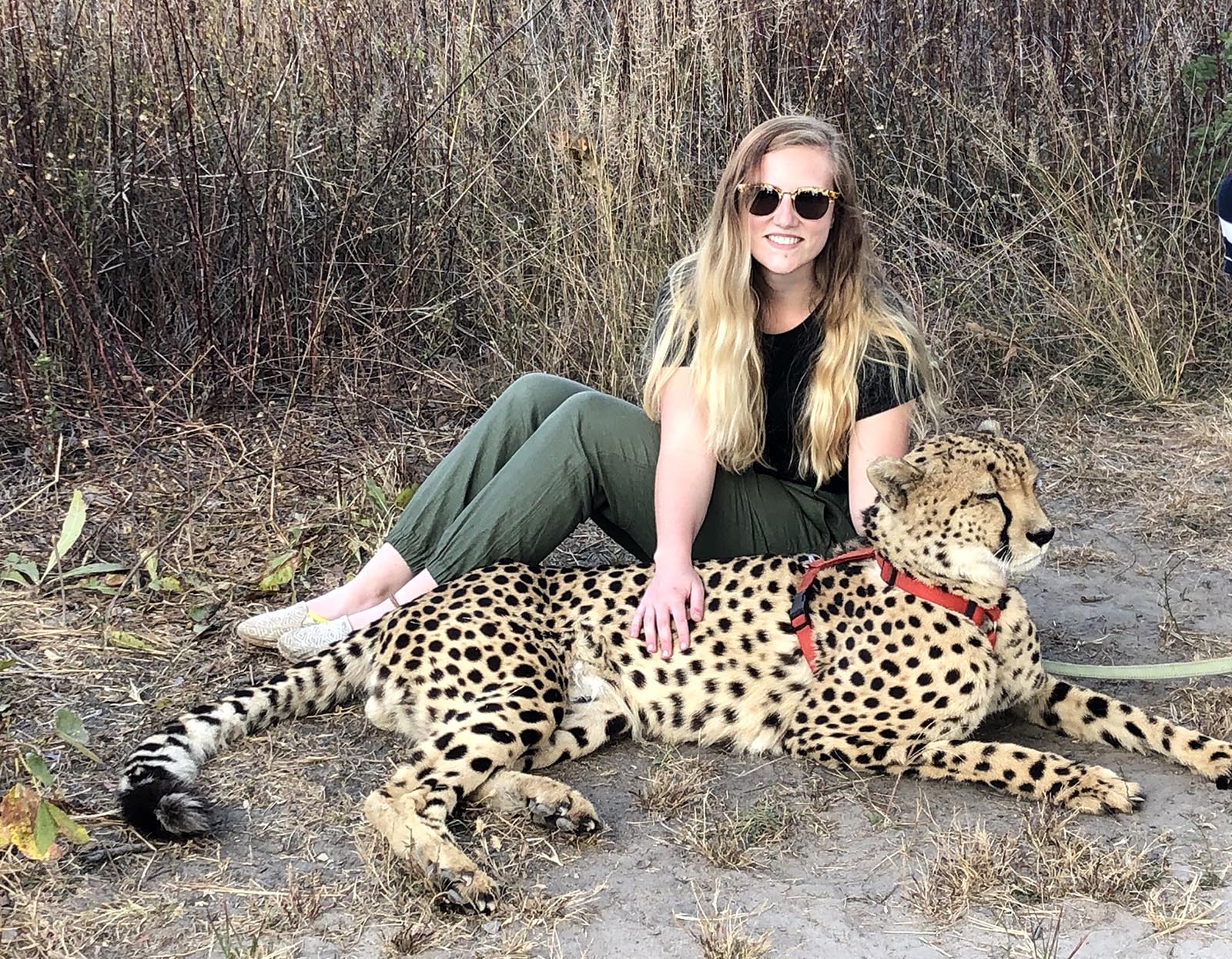
LASTING IMPACT
Aside from the clinical work, UNK faculty used the trip to study topics such as maternal and child health, elder care, family sustainability and health care communication and administration. They interviewed patients, who mostly spoke Nyanja, looked at the clinic’s policies and procedures and met with the administrator from a hospital about two hours away.
The UNK team also visited an orphanage, handed out donated food and clothing, interacted with students and staff at the university where they stayed and traveled to the University of Zambia in Lusaka, where they met with faculty from the College of Education to discuss early childhood and family advocacy issues, as well as potential partnerships with UNK.
“My hope is that we can build on those relationships and create opportunities not just at the clinic, but at other places in Zambia, as well,” Fleig-Palmer said.
While in Lusaka, they connected with Chipo Mpulamasaka, a Zambia native who graduated from UNK in 2015. Other activities included a trip to Victoria Falls and a sanctuary where they got an up-close view of cheetahs, elephants and other animals.
“It was absolutely incredible,” Copp said. “It was so beautiful. It’s just amazing to see everything they have to offer there.”
In addition to enhancing their course curriculum, the UNK faculty hope this experience inspires more students and educators to travel the world while using their knowledge to help others.
“I’m encouraging everyone to go,” Obasi said. “I’m telling all my friends, you’ve got to go and see this place firsthand. Once you’re there, you can’t help but help them. The help is needed and it’s truly appreciated.”
Fleig-Palmer feels the same way.
“You really get to see how you were able to have a positive impact in a patient’s life. That, to me, was one of the greatest parts of the trip,” she said.
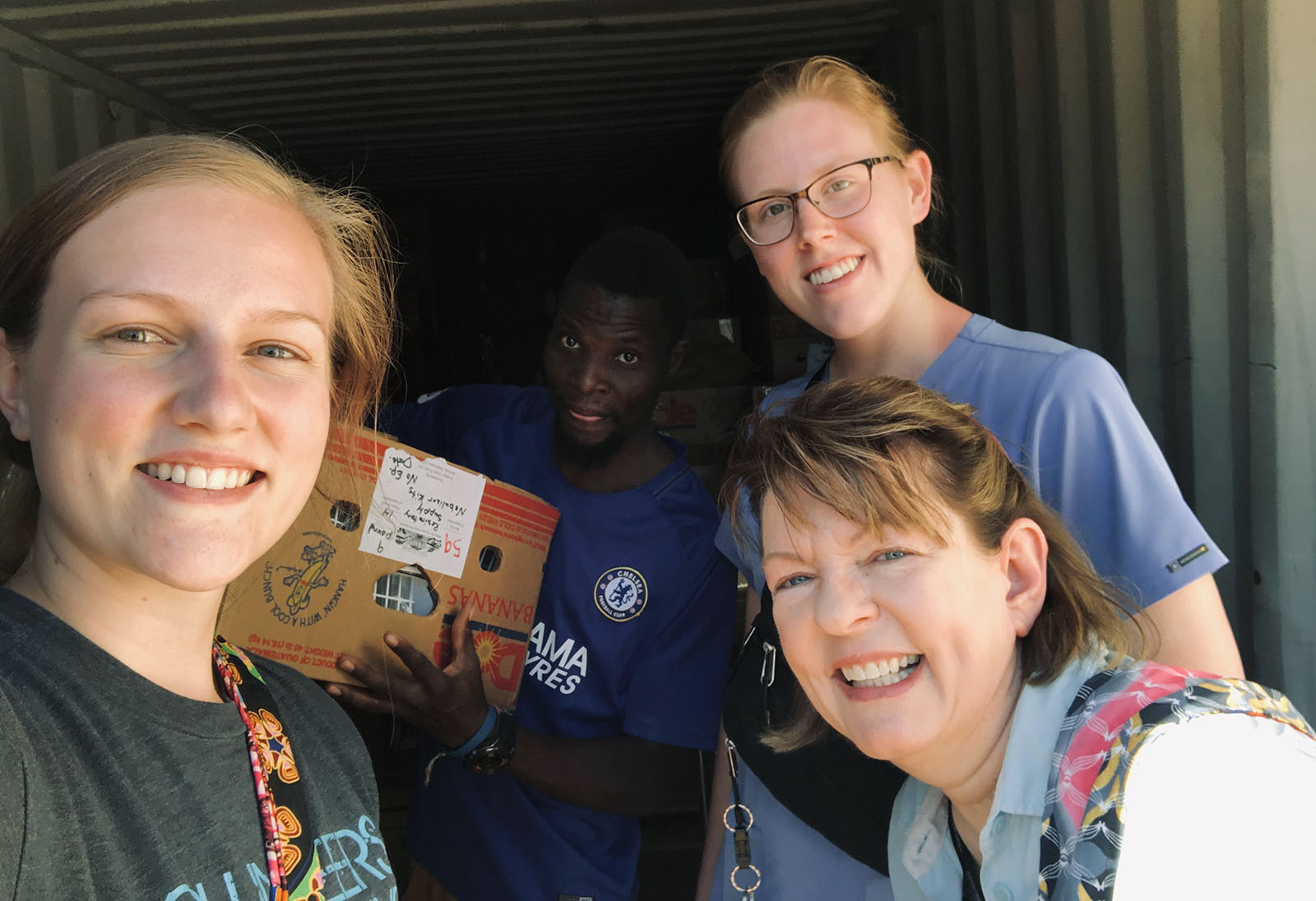
RURAL HEALTH FORUM
Dr. Marjie Heier, medical director at the Chifundo Rural Health Center in Zambia, will be the keynote speaker Sept. 25 when UNK hosts a forum on rural health care issues and the use of technology and teleservices.
The event, scheduled for 8:30 a.m. to 12:30 p.m. in the Nebraskan Student Union Ponderosa Room, is free and open to the public.
Heier will share her experiences running a medical clinic in Zambia and discuss health and virtual care issues from both a rural Nebraska and rural Zambia perspective.
The forum is supported by the University of Nebraska Africa Teaching Initiative and UNK’s Faculty Senate Artists and Lecturers Committee.



